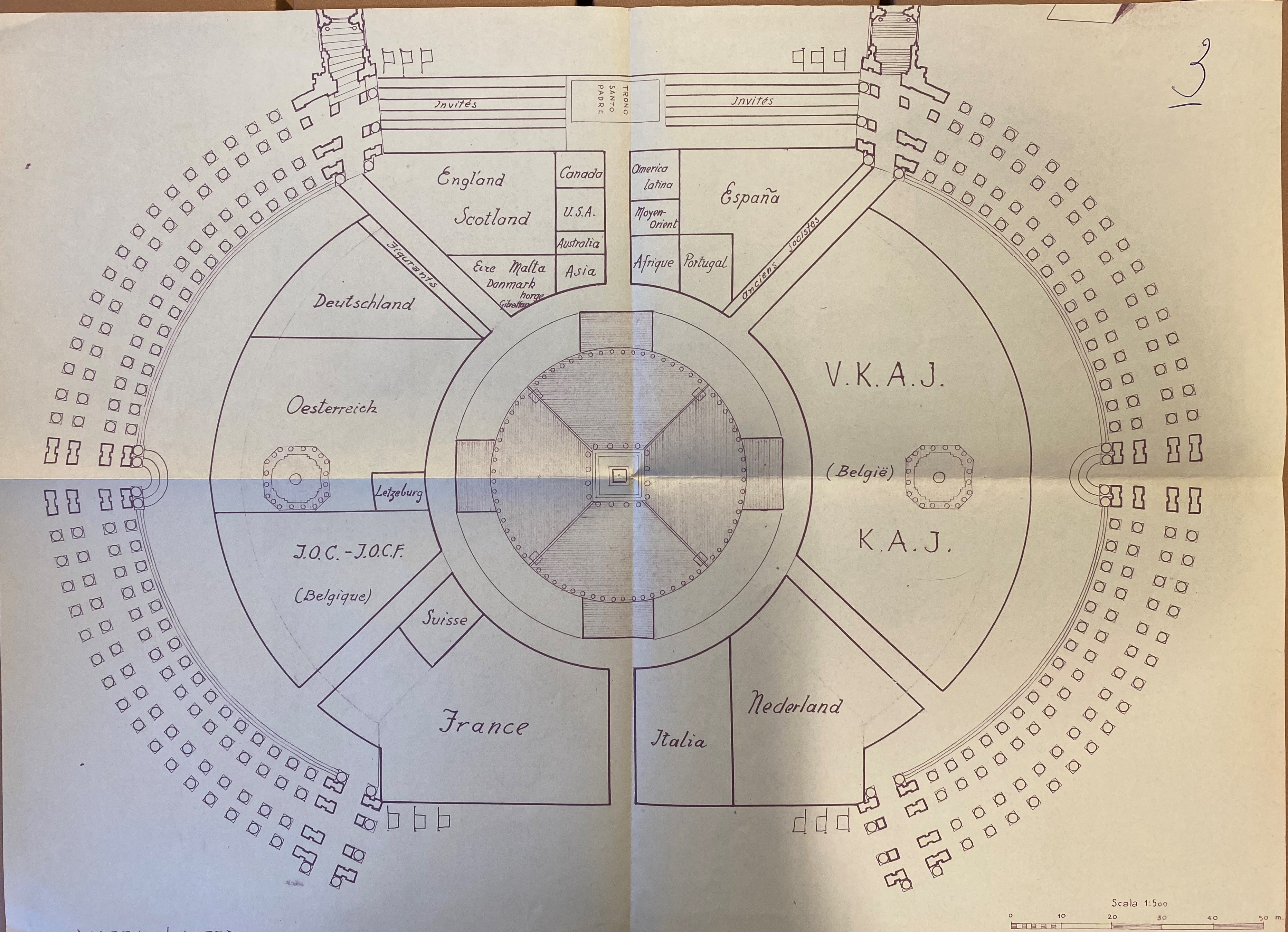
It has been two months since the IYCW archives were moved to KADOC, and since we have made good progress. In total, more than 1500 archive boxes were moved, which amounts to more than 160 meters! Here’s how we deal with such a large archive:
The process starts by putting the boxes on empty shelves in our depot. This allows us to gain an overview and match boxes that belong together, e.g. all boxes concerning International Councils. Then we apply ever more structure to the contents. For example, we first assemble all documents on the International Council in Beirut 1969 and then devise them into files or dossiers according to the subject; pieces concerning the preparation of the council, the subjects debated during the council, the elections, etc. Luckily, some sections already have an inventory made by members of the International Secretariat, which offers us a valuable guideline.




 English
English  Español
Español  Français
Français